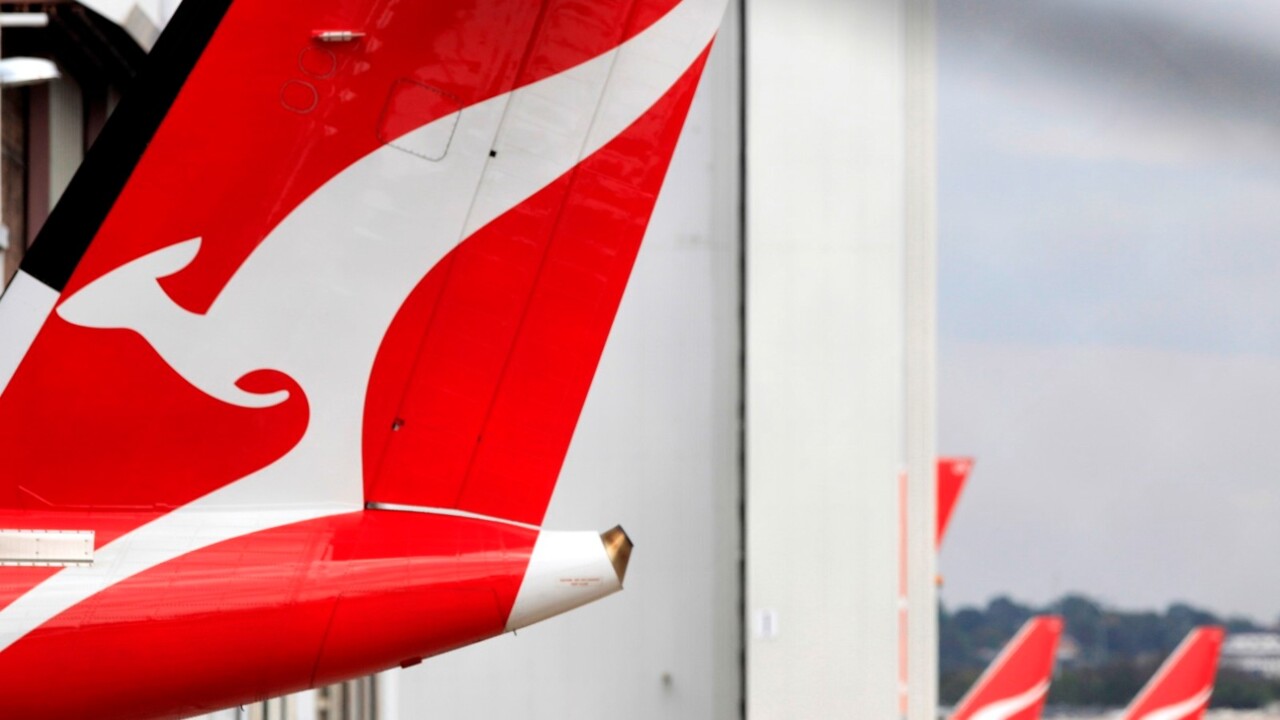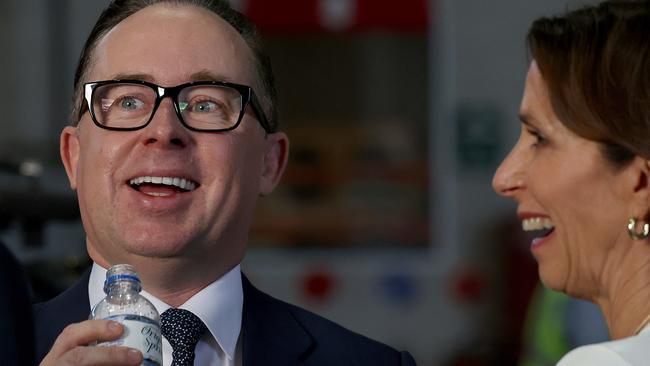Qantas, Virgin Australia duopoly failing to meet needs of consumers, says ACCC
The ACCC has called on the federal government to do more to promote competition in the domestic airline industry, saying travellers were getting the rough end of the stick.

The consumer watchdog has called for the federal government to do more to promote competition in the domestic aviation market and consider greater protections for travellers disrupted by delayed or cancelled flights.
In a submission to the Aviation White Paper, the Australian Competition and Consumer Commission suggested domestic airlines were not “fully meeting the needs of consumers”.
To support its argument, the ACCC contrasted growth in domestic travel to that of international travel in the years leading up to the pandemic.
Whereas international passengers increased by 5.3 per cent a year between 2012 and 2019, outpacing population and economic growth, the same was not true of domestic traffic which grew an average of 1.3 per cent a year, the submission said.
“The domestic airline industry does not appear to be fully meeting the needs of consumers or the economy (even discounting the issues that arose due to the disruptive impact of Covid-19),” the ACCC said.
“In the years leading up to the pandemic, growth in the number of domestic passengers flying did not keep pace with either the population or the economy, no new high-capacity airlines began offering services, flights were increasingly delayed and airfares went up.
“These issues have also been seen as the industry restarted after travel restrictions and lockdowns ended.”

It went on to say that the growth in international passengers, corresponded with an increasing choice of airlines.
From 2012 to 2019, the number of carriers servicing Australia climbed from 47 to 58.
The opposite was true of the domestic market where competition “appeared to be declining prior to the pandemic”, said the ACCC.
“Qantas Group and Virgin Australia did not face any competition from an independent airline on major routes while both appeared content with their respective shares of the market,” said the submission.
“Any possible competitive constraint from the potential for new entry would also have
been minimal, with no airline of a material size entering the industry since Tiger Airways in
2007.”
Developments since the pandemic were yet to significantly impact the market, such as the expansion of Rex, the entry of low cost carrier Bonza and the reinvention of Virgin Australia.
The ACCC said Virgin Australia’s move to lower airfares and no meals for passengers simply meant Qantas faced less direct competition.
Concerns were also raised about the challenges facing Rex and Bonza, including “aggressive competition from incumbent airlines” and limited access to Sydney Airport slots.
“Should Rex and Bonza not succeed, it will not just result in less competition in the near term, but will likely deter new airlines from attempting to enter the domestic intercity routes for many years,” said the ACCC.
The commission supported the concept of compensation for travellers disadvantaged by flight delays and cancellations to be further explored by the government.
Qantas’s submission to the white paper said any examination of a European Union type compensation scheme should be viewed in the context of the considerable support already given to passengers.
The airline was also keen to see more emphasis on reducing aviation emissions, including a domestic target for the production of sustainable aviation fuel.
Virgin Australia wanted the terms of reference expanded to include the commercial relationship between airports and airlines, given ongoing tensions about fees and charges.
Rex highlighted a range of perceived shortcomings in the terms of reference, including the omission of any mention of airline profitability, airfreight and airport regulation.
“There is also no mention of how to better manage the slots system at Sydney Airport,” said Rex’s submission.
“Currently there is clear evidence of airlines squatting on slots to reduce competition. If there is to be any new, meaningful, competition in the market there needs to be a review of the way slots at Sydney Airport are managed.”
The white paper was due to be released in the first half of next year, following further consultation and a call for more detailed submissions.







To join the conversation, please log in. Don't have an account? Register
Join the conversation, you are commenting as Logout